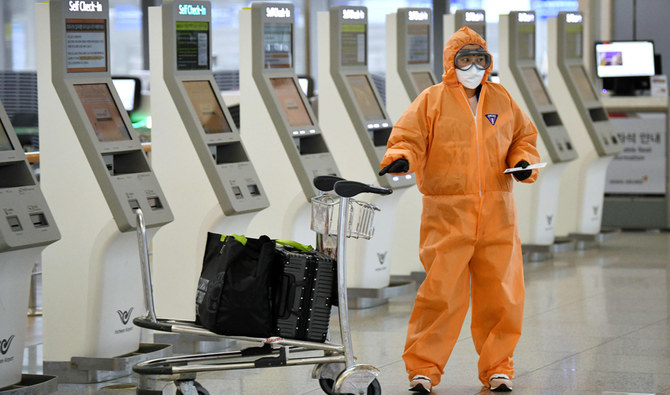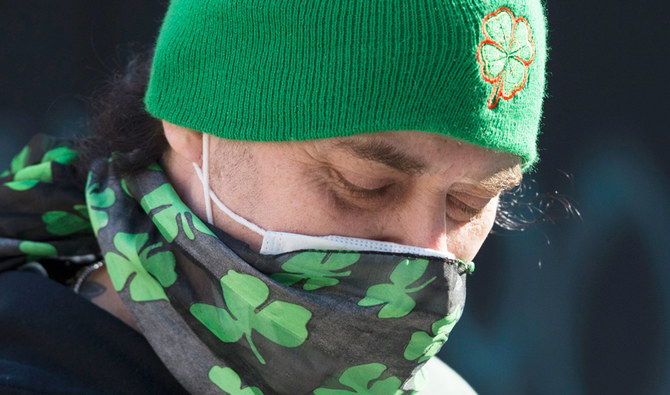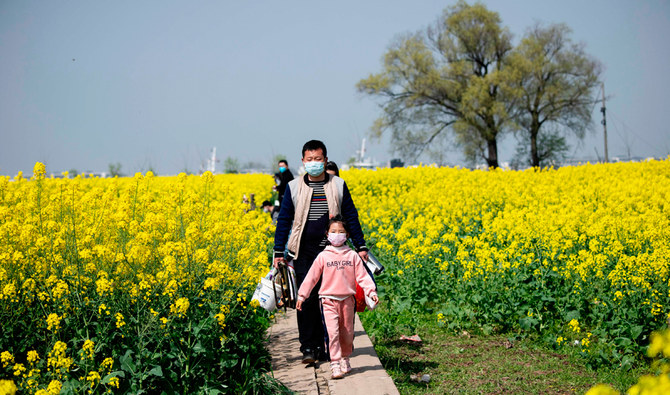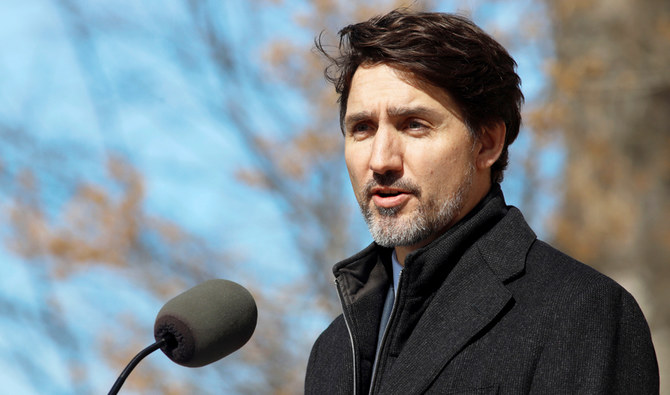MOSCOW: Russia said on Friday that any placement of British military assets in Ukraine under a new 100-year partnership agreement between Kyiv and London would be of concern to Moscow.
Kremlin spokesman Dmitry Peskov was asked about the possibility of Britain setting up military bases in Ukraine under the agreement announced on Thursday by Ukrainian President Volodymyr Zelensky and British Prime Minister Keir Starmer.
“Given that Britain is a NATO country, the advancement of its military infrastructure toward our borders is certainly a rather worrying element. In any case, it will be necessary to further analyze what will happen,” Peskov said.
At Thursday’s talks in Kyiv, Zelensky said he had spoken to Starmer about Kyiv’s desire for Western peacekeeping troops to be deployed in Ukraine if the war with Russia ended.
Asked if Britain would contribute troops, Starmer said in an interview with Sky News that he had discussed this with Zelensky and other allies and Britain would “play our full part.”
Peskov said Moscow also took a “negative” view of the prospect of British cooperation with Ukraine in the Sea of Azov, which he described as Russia’s “internal sea.”
The Azov Sea is bordered by southwest Russia, parts of southern Ukraine that Russia has seized in the war, and the Crimean peninsula that Moscow annexed from Ukraine in 2014.
The landmark agreement
Starmer said that the landmark century-long agreement commits the two sides to cooperate on defense — especially maritime security against Russian activity in the Baltic Sea, Black Sea and Sea of Azov — and on technology projects including drones, which have become vital weapons for both sides in the war. The treaty also includes a system to help track stolen Ukrainian grain exported by Russia from occupied parts of the country.
The announcement came days before Donald Trump is sworn in as US president with skepticism of America’s military burden in Europe and what he says is a plan to end the continent’s biggest conflict since World War II.
“We are with you not just today or tomorrow, for this year or the next, but for 100 years — long after this terrible war is over and Ukraine is free and thriving once again,” Starmer told Zelensky during a visit to Kyiv, promising that the UK would “play our part” in guaranteeing Ukraine’s post-war security.
While Starmer was meeting with Zelensky at the presidential palace, debris from Russian drones shot down by Ukraine’s air defenses fell in at least four districts of Kyiv, according to city administration chief Tymur Tkachenko. One was close to the Baroque presidential palace where the two men met.
Starmer said that the drones were “a reminder” of what the Ukrainian people are up against and their resolve.
Starmer’s unannounced visit is his first trip to Ukraine since he took office in July, though he said that it was his seventh meeting with Zelensky.
The Italian defense chief was also in Kyiv on Thursday, two days after Germany’s defense minister visited and three days after Zelensky talked by phone with French President Emmanuel Macron.
The flurry of diplomatic activity came in the days leading up to Trump’s inauguration on Monday, which is expected to bring a departure from the outgoing US administration’s pledge to stand with Ukraine for as long as it takes to defeat Russia. Trump has also indicated that he wants Europe to shoulder more of the burden for helping Ukraine.
Flood of support
Kyiv’s allies have rushed to flood Ukraine with as much support as possible before Trump’s inauguration, with the aim of putting Ukraine in the strongest position possible for any future negotiations to end the full-scale invasion, which began on Feb. 24, 2022.
Ukrainians worry that Trump’s plan will demand unpalatable concessions, such as giving up territory. Zelensky has also said that he wants security guarantees to deter Russia from invading again in the future.
“We must look at how this war could end, the practical ways to get a just and lasting peace … that guarantees your security, your independence and your right to choose your own future,” Starmer said at a joint news conference.
Zelensky said that the two leaders had discussed an idea floated by Macron for Western troops to monitor a future ceasefire, but said that it’s “a bit too early to talk about details.”
Starmer left the door open to UK participation, telling Ukraine’s leader that “we will work with you and all of our allies on steps that would be robust enough to guarantee Ukraine’s security.”
“Those conversations will continue for many months ahead,” Starmer said.
Zelensky has previously discussed a potential peacekeeping force with Baltic countries, France and Poland. But he said that it could only be part of the security solution and noted that “we do not consider security guarantees without the United States.”
Starmer agreed that Washington’s role in Ukraine is “vital.” The United States is the biggest provider of military support and advanced weaponry to the country.
“We will continue to work with the US on this,” Starmer said.
Starmer said that in 2025, the UK will give Ukraine “more military support than ever before.” He said that his country has already committed 3 billion pounds ($3.6 billion) for military aid this year, including 150 more artillery barrels and a UK-designed mobile air defense system named Gravehawk. The UK has pledged 12.8 billion pounds ($15.6 billion) in military and civilian aid since the war broke out.
During the daylong visit, Starmer and Zelensky laid flowers at a wall of remembrance for those killed in the war. The wall outside St. Michael’s Golden-Domed Monastery, a Kyiv landmark, is covered in photos of the slain, stretching for a city block. It has become a place of pilgrimage for families paying tribute to their lost loved ones.
Starmer also visited a Kyiv hospital specializing in burns treatment and an exhibition of drone technology.
As the grinding war nears the three-year mark, both Russia and Ukraine are pushing for battlefield gains before possible peace talks. Ukraine has started a second offensive in Russia’s Kursk region, where it is struggling to hang onto a chunk of territory it captured last year, and has stepped up drone and missile attacks on weapons sites and fuel depots inside Russia.
Moscow is slowly taking territory at the cost of high casualties along the 600-mile (1,000-kilometer) front line in eastern Ukraine and launching intense barrages at Ukraine’s energy system, seeking to deprive Ukrainians of heat and light in the depths of winter. A major Russian ballistic and cruise missile attack on regions across Ukraine on Wednesday compelled authorities to shut down the power grid in some areas.




























